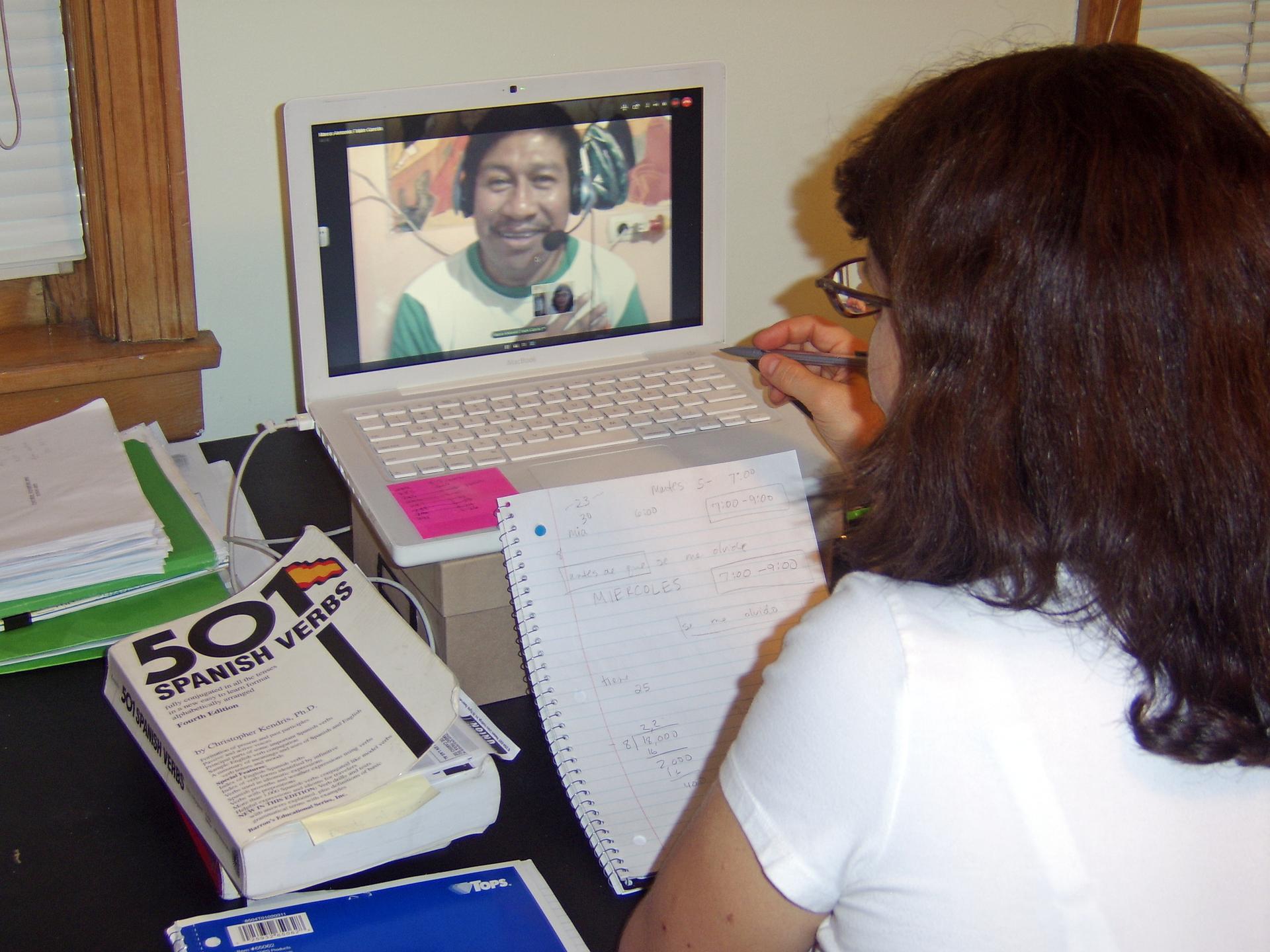This Spanish teacher in Guatemala doesn’t need to move to the US for a better job, he’s got Skype
Marco Antonio Tabin Garcia, in Antigua, Guatemala, Skypes with a student in Chicago.
When Marco Antonio Tabin Garcia was younger, he considered emigrating from Guatemala to the United States.
"Because I had heard in United States, there was gold," he says.
He knew he'd need to travel illegally, crossing through Mexico, so he decided against the journey. Instead, he got a job teaching Spanish at a local language school, where he earned about $2 an hour. He continued teaching at local schools for more than 20 years.
Now 49, Tabin Garcia has found a way to make a much better living without leaving his own home. He teaches Spanish lessons on Skype, mostly to American and Canadian students. He makes $10 per hour, five times what he made at the local schools.
Erin O'Reilly, a veteran language teacher based in California, teaches in traditional classrooms and online. She's seen online language lessons take off globally in the past three years. She says it co-incides with growing Internet access in developing countries.
"This is transformational for language learners who are trying to learn outside of a traditional classroom setting," O'Reilly says.
But she doesn't think classroom teaching will die out any time soon. She says language learners often need the structure and motivation that comes with in-person lessons.
 For Tabin Garcia, Skype lessons have been so profitable that he quit his job at the language school last month. He's been able to buy luxuries he and his wife could not previously afford, like a washing machine. His dog, Manchas, used to sleep on a cardboard box. Tabin Garcia recently bought him a cushy dog bed.
For Tabin Garcia, Skype lessons have been so profitable that he quit his job at the language school last month. He's been able to buy luxuries he and his wife could not previously afford, like a washing machine. His dog, Manchas, used to sleep on a cardboard box. Tabin Garcia recently bought him a cushy dog bed.
On a recent Thursday evening, Tabin Garcia had a one-hour Skype lesson with student Laura Knotts, who lives in Chicago. They made small talk about weather and their families and Tabin Garcia corrected her mistakes.
Knotts is one of a dozen students Tabin Garcia teaches each week. He's brought his wife and sister into the business as well. The two women now have a few of their own students.
Tabin Garcia's weekly income of about $150 to $200 supports not only himself and his wife, but his extended family. He says his 7-year-old niece used to be malnourished and became sick. Her parents didn't have enough money to pay for a doctor.
"She would have died," Tabin Garcia said. "Her condition was very, very bad."
He used his Skype earnings to pay for her medicine and food. She's doing better now.
There are some roadblocks to teaching via Skype. For one, an Internet connection is expensive, as is the laptop he uses. Some people don't know how to use Skype. Tabin Garcia has trained a few friends and family. And, of course, there are always technical glitches. But Tabin Garcia has been able to keep his independent business going despite those problems.
Talking to students in different countries has made him more interested in traveling outside of Guatemala, something he's never done before.
"I would like to visit the country where students live," he said. "I would like to visit Chicago. I would like to visit Canada. Winter Canada, for seeing the snow."
We want to hear your feedback so we can keep improving our website, theworld.org. Please fill out this quick survey and let us know your thoughts (your answers will be anonymous). Thanks for your time!
